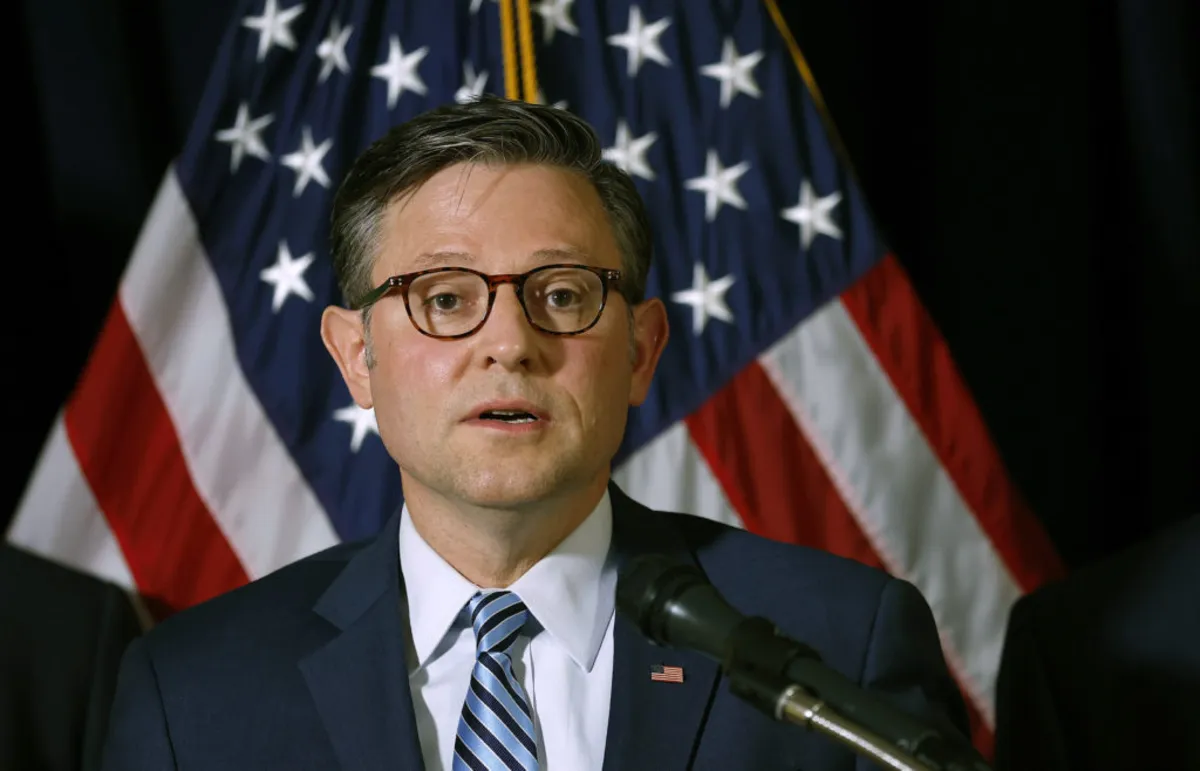
In a historic move, the House of Representatives granted final approval to President Donald Trump’s request to rescind approximately $9 billion in funding for public broadcasting and foreign aid early Friday morning. This vote marks the first instance in decades where a president has successfully submitted a rescissions request to Congress, signaling a shift in how fiscal policy may be handled under the current administration.
The House passed the rescissions bill by a narrow margin of 216-213, which now awaits President Trump’s signature. House Speaker Mike Johnson, a Republican from Louisiana, emphasized the need for “fiscal sanity,” calling this legislative step crucial. Despite some discomfort among Republicans regarding the cuts, many chose to support the measure to remain aligned with Trump’s broader agenda.
Critics of the bill raised concerns about the implications of Congress ceding its spending powers to the executive branch. They highlighted that prior rescission efforts generally had some bipartisan support, contrasting it with the current Republican package, which they described as unprecedented. In the Senate, the measure passed without any support from Democrats, with a vote of 51-48.
The proposed cuts include a significant $1.1 billion reduction for the Corporation for Public Broadcasting (CPB), representing the total funding due for the next two budget years. The White House has criticized the public media system, claiming it is politically biased and an unnecessary expenditure. The CPB allocates more than two-thirds of its budget to over 1,500 locally operated public television and radio stations, with the remainder funding national programming through National Public Radio and the Public Broadcasting Service.
Democratic lawmakers, particularly those representing rural areas, expressed grave concerns about the potential impact of these cuts on local public stations. Senator Lisa Murkowski from Alaska remarked on the essential services these stations provide, such as tsunami alerts and emergency information. During the Senate debate, a 7.3 magnitude earthquake underscored the critical role of public broadcasting in disseminating urgent safety information.
Alongside public broadcasting cuts, nearly $8 billion in foreign aid programs will also be eliminated. This includes $800 million designated for emergency shelter and family reunification for refugees, and $496 million aimed at providing essential food and healthcare in disaster-stricken areas. Furthermore, the package proposes a $4.15 billion reduction for initiatives that support economic growth and democratic institutions in developing nations.
Democrats argue that these cuts could severely undermine America’s standing on the global stage, leaving a void that countries like China could exploit. Democratic leader Hakeem Jeffries criticized the bill, stating, “This is not an America-first bill; it’s a China-first bill” due to the potential geopolitical ramifications.
Concerns have also been raised about the legislative process itself, as this bill disrupts the traditional bipartisan cooperation needed to fund national priorities. Triggered by the White House's rescissions request, the bill only required a simple majority to advance in the Senate, allowing Republicans to pass it along party lines with their 53-47 majority. Two Republican senators, Murkowski and Susan Collins from Maine, joined Democrats in opposing the bill.
Senate Armed Services Committee Chairman Roger Wicker of Mississippi, while voting for the bill, expressed caution about the lack of transparency regarding the cuts. The Director of the Office of Management and Budget, Russ Vought, highlighted the successful passage of this rescissions package as a sign of enthusiasm for fiscal reform, indicating that future rescission efforts might follow soon.
As the political landscape continues to evolve, the implications of these cuts to public broadcasting and foreign aid will likely spark further debate and legislative challenges, raising questions about the future of government spending and the role of public institutions.